- Home
- Perrin Briar
Flowers vs. Zombies (Book 2): Vagrant Page 7
Flowers vs. Zombies (Book 2): Vagrant Read online
Page 7
“Bill…” she said.
“I have to start working,” Bill said. “The ship isn’t going to harvest itself. I’m not risking the lives of our children for a piece of fruit or to complete a task fractionally faster. We go everywhere together or we go nowhere.”
“I’m not asking you to risk their lives, but to trust them,” Liz said. “Trust them to make their own decisions, to do what they think is right. They need to learn. We can’t shelter them their whole lives on this island.”
“We won’t forever,” Bill said.
“But we will today,” Liz said flatly.
Bill’s jaw muscles tightened. He smacked the tree stump table with his open palm, making Liz jump. His eyes bored into her.
“Don’t push me, Liz,” he said, his tone flat and joyless, eyes cold and hard as iron.
He turned and walked away, leaving Liz shocked and afraid.
Chapter Twenty-Four
“FINALLY WE have enough seeds to plant!” Liz said.
Liz wiped her forehead with the back of her hand and looked over her handiwork. The dark earth lay in long furrows. She handed a fist of seeds to Francis, who pressed them delicately into the dark soil, one at a time with his index finger, and then covered them over.
Birds of all colours and sizes perched on low hanging boughs cawing and singing and whistling, watching as Liz took more seeds out of the pouch at her waist. The birds flapped their wings and ruffled their feathers.
Liz watched them. Her head cocked to the side in thought. Liz put the seeds back in her pouch and leaned the shovel against the fence.
“Come with me,” she said, taking Francis’s hand and leading him away.
She got to a tree halfway across the clearing and crept behind it. She watched the birds on the bough. They cheeped and cawed, staring down at the soil below. For the first thirty seconds they did nothing.
Then a handsome bright blue bird with yellow wingtips swooped down onto the furrows’ soft mounds. He cocked his head and moved his jerky way across the soil to the location where Francis had planted the seeds.
He pecked at the soil once, twice, three times, and then stopped, turning to look about himself, and then used his tiny foot to dig at the soil. He chirruped and lowered his head into the hole to extract the seed, holding it with the tip of its beak.
He flapped his wings, but before he could take off a dozen tiny white balls similar in appearance to cotton buds fell upon him, squawking until he dropped the seed. One of the smaller birds seized the seed and took flight, two dozen birds giving chase.
Liz growled under her breath.
“Why are things never easy?” she said.
Chapter Twenty-Five
LIZ TIED the final two pieces of vine together. She picked up the mesh she’d made and pulled it to one side so it hung from the Y-shaped sticks in the corners. The birds remained overhead, perched the low branches, watching. Liz walked across the clearing and waited behind a tree.
After a moment the birds descended. They landed on the mesh Liz had made, pecking at it and making chirping noises. They poked their beaks through the holes but could not reach the soil.
“Yes!” Liz said, fists punching the air.
She performed a victory dance.
“What are you doing, Mummy?” Francis said.
“Mummy’s happy, baby.”
“Is that bird happy too?” Francis said, pointing toward the allotment. “He’s dancing.”
A black bird’s head bobbed left and right. He pecked at the mesh lying on the ground with his big shiny beak. He cawed at it. He picked it up, ducked his head underneath and entered the allotment.
Liz hung her head. The birds were never going to let her grow anything.
Just then, Fritz climbed down from the treehouse with Beauty on his gloved hand. Liz cocked her head to one side and crossed to him.
“Where are you off to, Fritz?” Liz said. “To train Beauty?”
“That’s the plan,” Fritz said. “She needs practice killing small rodents.”
“Birds too?” Liz said.
“Sure,” Fritz said.
Liz grinned.
“I might just have the perfect training ground for her,” she said.
Chapter Twenty-Six
THAT NIGHT Liz lay in bed, on the fringes of where consciousness and unconsciousness met and blurred.
There was a piercing screech followed by a light strangled squawk in the night. And then silence.
Liz smiled to herself and felt a warm fuzzy glow spread through her chest. She fell over the edge and into sweet oblivion.
Chapter Twenty-Seven
IN THE MORNING Liz was welcomed by a screech from Beauty as she entered the allotment. Beauty bobbed her head and edged along her perch. To her right was a small box with dead birds piled inside it. There were scuff marks on the top of the soil and a few imprinted feather-like patterns.
“How did she do?” Fritz said, joining Beauty, who screeched loudly and flapped her wings upon seeing Fritz.
“Three birds,” Liz said. “Not bad for one night.”
Fritz picked Beauty up.
“There’ll probably be the same tonight,” he said. “Maybe tomorrow too, but it’ll drop off after that. Birds are smart. They’ll know not to come down here again.”
“Good,” Liz said. “That’s all I wanted.”
Fritz stroked the crest of Beauty’s head and looked deep in thought.
“Can I ask you something?” Fritz said. “Where does Dad go every morning?”
“What do you mean?” Liz said.
“He gets up, climbs down the ladder, and walks off somewhere,” Fritz said. “Then he comes back a few hours later at breakfast.”
“Oh that,” Liz said. “He just goes for a walk.”
“Every morning?” Fritz said. “He must like it here.”
“Don’t you?” Liz said.
Fritz shrugged.
“It’s not so bad now I have Beauty,” he said.
Liz absentmindedly stroked Beauty’s head. Fritz put Beauty back on her perch and headed toward the breakfast table, where Bill was just returning from his walk. Liz bit her lip. She turned to Beauty.
“Where do you think he goes?” she said.
Beauty screeched.
“You’re not wrong,” Liz said.
Chapter Twenty-Eight
THE SAPLINGS were brown, dry and shrivelled. Liz rubbed the saplings between her fingers and they disintegrated into dust. Her heart sank.
“What am I doing wrong, Bill?” she said one day after another lacklustre coconut-themed meal.
“They’re not used to being farmed,” Bill said. “They’re wild vegetables, used to growing wherever they land, wherever they are. We must not be giving them something they would normally get in the wild.”
“Then I need to domesticate them,” Liz said. “How do I do that?”
“The same way you’ve been doing,” Bill said. “There is no other way.”
“There must be something I’m missing,” Liz said.
“How do farmers usually grow crops back home?” Bill said. “They till the soil, plant the crops, water it, spray it…”
“Fertilise it,” Liz said, her mind a million miles away.
Her head snapped up.
“Fertiliser!” she said. “That’s what we need! In the wild they feed off the dead leaves that fall from the trees! And the animal dung and urine that the animals drop!”
“You could use our faeces, if you like,” Bill said. “Though it won’t be pleasant.”
“But the vegetables will be,” Liz said.
“With what we’ve been eating I doubt it would help grow much of anything,” Bill said. “I could dig a new latrine and put a bucket at the bottom, and every day you can pull it up and empty it over the vegetables. Don’t expect the boys to scrabble to help you, though.”
“They won’t have to,” Liz said. “This is a work of passion.”
“It would have to
be,” Bill said. “Anything less and you wouldn’t do it. The good news is that once you break the first generation of crops in it’ll be easier to grow successive generations. Are you up to it?”
“I think so,” Liz said. “What do we have to lose?”
“Your sense of smell, perhaps,” Bill said.
He got up and turned to go.
“Bill, wait,” Liz said. “I have something important to ask you.”
“What is it?” Bill said.
“Where do you go in the mornings?” Liz said. “Every morning you get up early, and come back after a few hours. Where do you go?”
“I told you,” Bill said. “I just go for a walk.”
“Would you mind if I come with you sometimes?” Liz said.
“You, go for a long walk?” Bill said. “Doesn’t sound like your kind of thing.”
“I’d like to try it,” Liz said.
“I’d rather go on my own,” Bill said. “It’s good for clearing my mind for the day ahead. And checking the perimeter.”
He smiled a distracted smile and walked away.
“All right,” Liz said. “See you at lunch.”
Liz watched Bill’s departing back. He’d given her three reasons, and none of them had been true.
Chapter Twenty-Nine
FRITZ SURVEYED the sky. It was clear with hardly a cloud in sight. A flock of marbled ducks flew overhead in V-formation. Fritz raised his arm and said, “Away!”
Beauty, near-fully grown, flapped her powerful wings and took to the sky. She flew low, hugging the ground, and then pulled up sharp, coming around behind the flock. She stayed at their rear for a minute, watching them, and then flapped her wings and flew up higher and higher until she was no more than a pimple on the Sun’s face.
“How’s she doing?” Bill said.
“Good, so far,” Fritz said.
“Where is she?” Bill said.
“There,” Fritz said, pointing. “That black dot.”
The dot suddenly began to fall, dropping like a rock, heading straight for the flock.
At the last moment the flock broke apart, swerving out of the way, but too slow as Beauty fell into them.
She collided with one duck, which, stunned, smacked into a second. Beauty lost her grip on the first bird, but stretched, gripped and grappled with the second duck. They spun through the air as they fell.
The first duck flapped its wings and climbed, re-joining the flock. The second duck, locked tight in Beauty’s talons, got a wing free and flapped, turning the pair in a slow circle. As they drew closer Fritz could make out Beauty’s head, moving back and forth, stabbing and tearing at the bird it had locked in her deadly embrace.
“Pull up,” Fritz said under his breath. “Pull up.”
The duck’s head flopped to one side, listless. Beauty stretched her wings, flapping wildly against the updraft. But she was falling too fast. The two birds disappeared behind the tall jungle trees.
“I have to go find her,” Fritz said.
“You’ll never find her,” Bill said, resting a hand on Fritz’s shoulder. “If she’s alive she’ll come find you. She’s smart. Let her training take over.”
Fritz kept his glove on all day, not even removing it during dinner, choosing instead to eat with his left hand. He checked the sky every ten seconds.
The sun began to set and the sky turned blue with the onset of darkness. The rest of the Flower family had gone to bed. Fritz sighed, took off his glove and hung it from its hook on the tree. He turned to look out at the sky one last time before going to bed.
Fritz lay down and stared up at the bright stars in the sky. His chest felt heavy and empty, going over the events of the hunt in his mind. He drifted off.
There was an insistent knocking on wood. Fritz awoke, sitting up. Liz, dressed in her holey nightgown, leaned out over the landing. She turned to Fritz and smiled.
“It’s for you,” she said.
Beauty screeched. Her feathers were damp and unkempt, but she carried herself with a new sense of confidence. But that might have just been Fritz’s imagination. It was all Fritz could do not to run and wrap his arms around the bird, but he restrained himself.
“Good girl,” he said, brushing her head the way she liked.
She hopped on her perch to get closer to Fritz, and for a moment he thought she was injured. She extended her talon. In her claw was a duck.
Chapter Thirty
THE EARTH lay open and prepared in nice long neat furrows. Armed with a peg on her nose, Liz began spreading the faeces over them. The faeces slopped out of the bucket, some of it still steaming, warm and fresh. Liz mixed the fertiliser into the soil with a homemade rake.
Liz giggled like a schoolgirl when the first sprouts of life poked their heads inquisitively above the soil’s red-brown surface. Even to Liz’s untrained eye these tiny reeds showed greater promise than the previous generation.
The stalks were thicker, greener and came through the soil faster. With daily attentive care they grew quickly. Liz spent so much time with them that Fritz joked they were the fifth child of the family.
“Will they reach to the sky like Jack’s beanstalk?” Francis said with excitement.
“We’re not quite there yet,” Bill said. “But it’s a start. And these aren’t beans we’ve planted.”
Liz locked eyes on Bill and then rolled her eyes toward Francis.
“Ah,” Bill said. “But we’ll be climbing the stalks in no time, all the way to the sky.”
“Will we be able to see home?” Francis said.
“Chucerne?” Liz said. “I imagine so.”
“Good,” Francis said. “I’d like to see Granny again. She smells, but not in a bad way.”
“No?” Bill said. “She always smelled bad to me.”
Liz jabbed Bill in the ribs.
“You’ll see her again one day, Fran,” Bill said, ruffling his hair. “We all will.”
“Until then, we need to grow these beans,” Liz said. “Will you help me water them?”
“Okay,” Francis said.
Liz took Francis by the hand and led him to the water they kept stored in a dozen coconut shells.
“We’ll pick the fruit and veg tomorrow,” Liz said. “They should be nice and ripe.”
“Good,” Bill said. “I was getting sick of coconut-themed food.”
“You won’t have to put up with it for much longer,” Liz said. “I can’t wait to get back into cooking again.”
“Anything but coconut,” Bill said. “I’m easy.”
Chapter Thirty-One
JACK RAN at full tilt into the clearing.
“Where have you been, Jack?” Liz said. “Your food’s cold.”
Jack skidded, but failed to stop in time and bumped into the table. Fritz’s food slid off his plate and onto his lap.
“Hey!” Fritz said. “Watch it!”
“I saw a ship!” Jack said, ignoring his brother.
“Is that unusual?” Ernest said. “We’ve all seen a ship the few months – the galleon sinking in the bay.”
“No, not that one!” Jack said. “A big one with black sails!”
Bill looked up.
“You saw a ship?” he said. “Where?”
He got up, dropping his cloth on the table.
“This way,” Jack said, leading Bill away from the table.
Fritz wiped his mouth, got up and followed, Francis hot on his heels. Ernest continued to eat. Liz got to her feet.
“You’re not going to go see the ship?” Liz said.
“No,” Ernest said. “I’m going to enjoy eating in peace for a change.”
He leaned over and helped himself to some of Fritz’s tiny potatoes.
“Don’t touch mine,” Liz said.
“Don’t tell Fritz and it’s a deal,” Ernest said.
Liz ran down the path and followed it around the corner to the bluff of the cliff. Bill, Jack and Fritz stood on the edge, peering out at the wide gleaming wh
ite expanse of the ocean before them.
“It was right there!” Jack said, pointing toward the horizon.
“I believe you,” Bill said. “Which direction was it heading in?”
“That way,” Jack said, pointing toward the long extended fingers of the cove.
“No luck?” Liz said, shielding her eyes with her hand.
“They must have gone around the cove,” Fritz said.
“Did they have a flag?” Bill said to Jack.
“I don’t remember,” Jack said, squinting with the memory. “Maybe.”
“Should we set something up so they’ll see us next time?” Fritz said.
Bill thought for a long moment, looking out at the glittering water of the ocean.
“No,” he said, and turned and headed back toward their treehouse.
Fritz and Liz watched as Bill ascended the path, absentminded, holding Francis’s forgotten hand.
“We’d best be getting back to dinner,” Liz said. “Hopefully there’ll be some left.”
Fritz looked at her and frowned. Then his eyes rose in the direction of the treehouse. He ran.
Chapter Thirty-Two
LIZ APPROACHED Bill, who sat hunched over the little pink radio, polishing each piece with a worn rag under the dull yellow light of the torch.
“I can’t seem to get it going again,” he said.
“Maybe it’s not broken,” Liz said. “There might not be any signal to catch.”
“The world turn silent?” Bill said. “I’m not sure if that’s possible.”
“There were people on the ship Jack saw,” Liz said. “We should set up some kind of signalling device, don’t you think?”
“I’m not sure contacting them is the best idea,” Bill said.

 Sink: Once Upon A Time
Sink: Once Upon A Time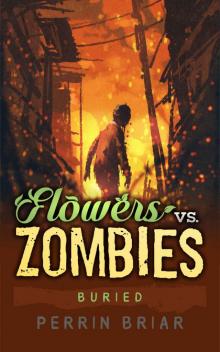 Flowers Vs. Zombies (Book 5) Buried
Flowers Vs. Zombies (Book 5) Buried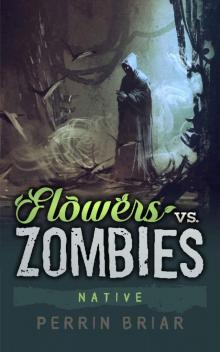 Flowers Vs. Zombies (Book 6) Native
Flowers Vs. Zombies (Book 6) Native Z-Minus Box Set 2
Z-Minus Box Set 2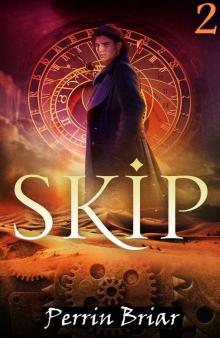 Skip: An Epic Science Fiction Fantasy Adventure Series (Book 2)
Skip: An Epic Science Fiction Fantasy Adventure Series (Book 2) Resistance (Book 1): Juvenile
Resistance (Book 1): Juvenile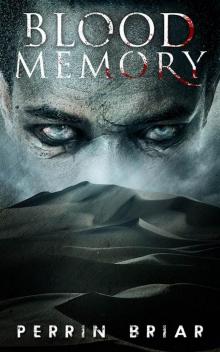 Blood Memory: A Post-Apocalypse Series (Book Five)
Blood Memory: A Post-Apocalypse Series (Book Five) Sink: The Lost World
Sink: The Lost World![Z-Minus Box Set [Books 1-3] Read online](http://i1.bookreadfree.com/i1/03/30/z-minus_box_set_books_1-3_preview.jpg) Z-Minus Box Set [Books 1-3]
Z-Minus Box Set [Books 1-3] Compulsion
Compulsion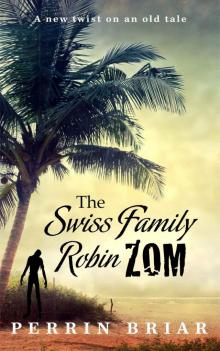 The Swiss Family RobinZOM (Book 3)
The Swiss Family RobinZOM (Book 3) Sink: The Complete Series
Sink: The Complete Series Expulsion
Expulsion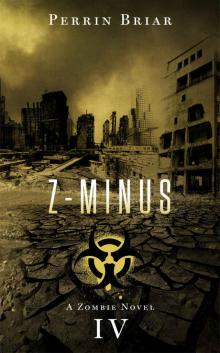 Z-Minus (Book 4)
Z-Minus (Book 4) Resistant Box Set
Resistant Box Set The Swiss Family RobinZOM (Book 2)
The Swiss Family RobinZOM (Book 2)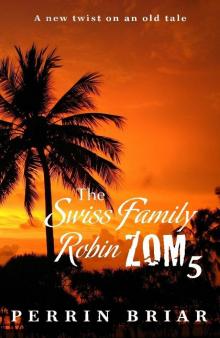 The Swiss Family RobinZOM (Book 5)
The Swiss Family RobinZOM (Book 5)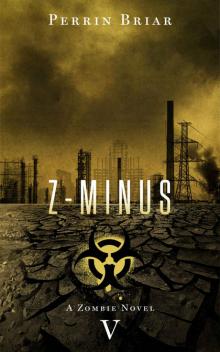 Z-Minus (Book 5)
Z-Minus (Book 5) Resistance (Book 2): Resistant
Resistance (Book 2): Resistant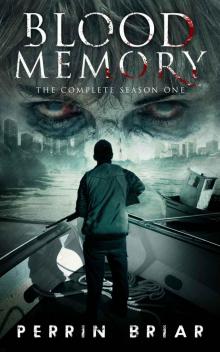 Blood Memory: The Complete Season One (Books 1-5)
Blood Memory: The Complete Season One (Books 1-5)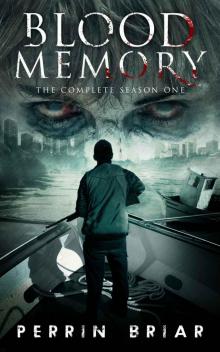 Blood Memory (Season 1): Books 1-5
Blood Memory (Season 1): Books 1-5 Flowers Vs. Zombies: The Complete Series
Flowers Vs. Zombies: The Complete Series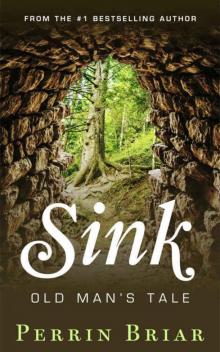 Sink: Old Man's Tale
Sink: Old Man's Tale![Cut Off [Part 1] Read online](http://i1.bookreadfree.com/i2/04/06/cut_off_part_1_preview.jpg) Cut Off [Part 1]
Cut Off [Part 1]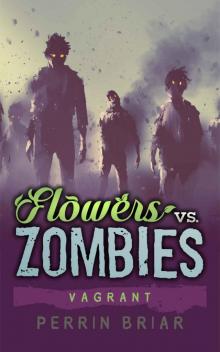 Flowers vs. Zombies (Book 2): Vagrant
Flowers vs. Zombies (Book 2): Vagrant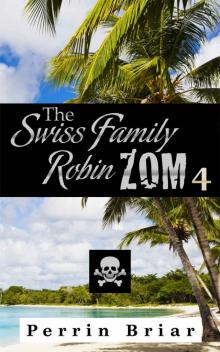 The Swiss Family RobinZOM (Book 4)
The Swiss Family RobinZOM (Book 4)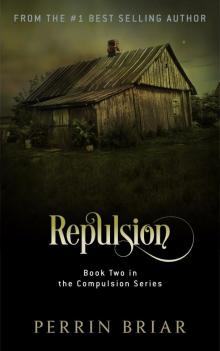 Repulsion (Compulsion Book 2)
Repulsion (Compulsion Book 2)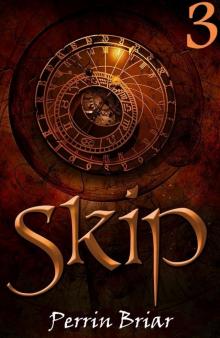 Skip: An Epic Science Fiction Fantasy Adventure Series (Book 3)
Skip: An Epic Science Fiction Fantasy Adventure Series (Book 3)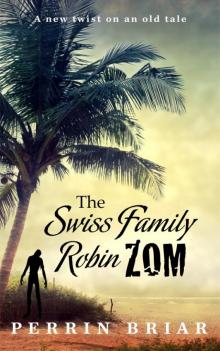 The Swiss Family RobinZOM
The Swiss Family RobinZOM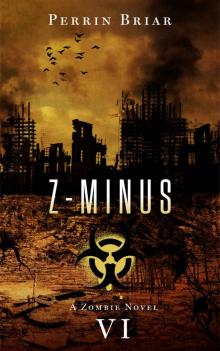 Z-Minus (Book 6)
Z-Minus (Book 6)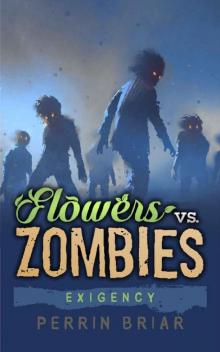 Flowers vs. Zombies (Book 4): Exigency
Flowers vs. Zombies (Book 4): Exigency![[An Epic Fantasy 01.0] Skip Read online](http://i1.bookreadfree.com/i2/04/12/an_epic_fantasy_01_0_skip_preview.jpg) [An Epic Fantasy 01.0] Skip
[An Epic Fantasy 01.0] Skip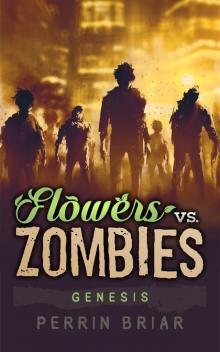 Flowers Vs. Zombies: Genesis
Flowers Vs. Zombies: Genesis